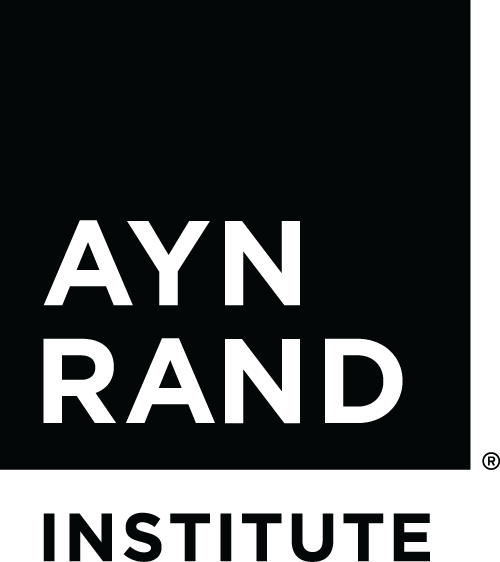Program Highlights
The ARU Experience
Get a sneak peek at Ayn Rand University with a sample class from three of our popular courses.
This sample class is based on the full-length ARU course of the same name. The full course explores the principles and attitudes that will help guide students in their work, career, and the world of business more generally. A major focus is on what the application of these ideas looks like, explored in part through a series of interviews and discussions with Objectivist businessmen, entrepreneurs, intellectuals, and professionals in various fields.
The session will focus on the nature of a fulfilling career, how to select a career, and key tips for building a fulfilling career.
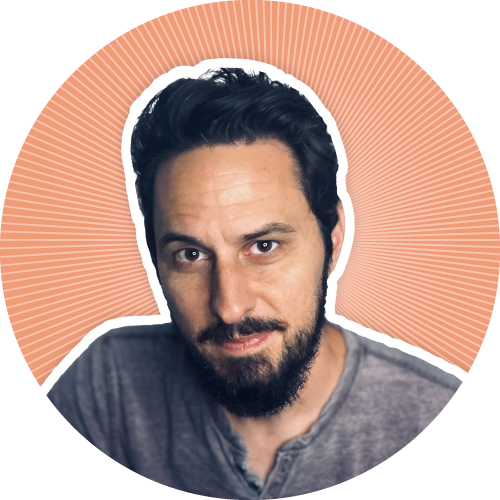
Don Watkins
Marketing Director,
Ayn Rand Institute
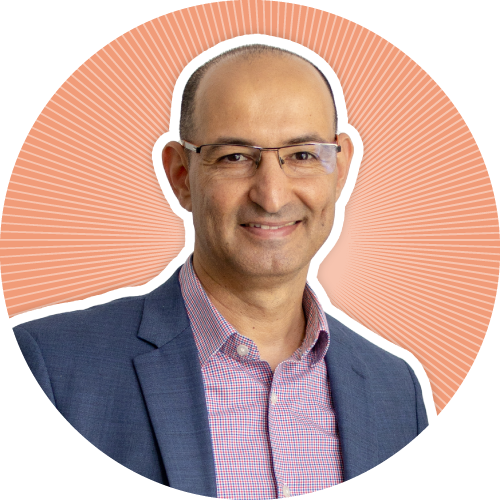
Tal Tsfany
President and CEO,
Ayn Rand Institute
This sample class is based on the full-length ARU course of the same name. The full course explores the major schools of thought, methods of inquiry, and empirical findings taught in a typical introduction to psychology course. But it explores how to understand and evaluate these theories, methods, and findings from an Objectivist perspective. Students learn how Objectivism can help us consume and get personal value from existing work in psychology, even when it is deeply flawed philosophically. The sample class will feature a selection of topics drawn from the full ARU course.

Dr. Gena Gorlin
Clinical Associate Professor, Department of Psychology, University of Texas at Austin, and Practicing Licensed Psychologist
In the age of social media everyone’s a self-proclaimed pundit, tweeting or posting on current events whether or not they possess any relevant knowledge or expertise. Meanwhile, our culture is saturated with stale, conventional thinking. People are taken in far too easily by false alternatives, tribalism, and superficial perspectives utterly lacking in nuance or principle.
In this sample class—based on the full-length ARU course of the same name—Yaron Brook and Onkar Ghate will share their insights into how they approach thinking about current events, how they acquire sufficient knowledge to comment meaningfully on any given topic, and how they use Objectivism as a lens to clarify even the thorniest of issues.
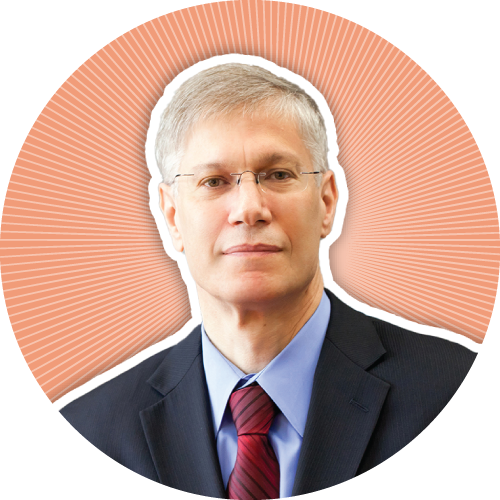
Dr. Yaron Brook
Chairman of the Board,
Ayn Rand Institute
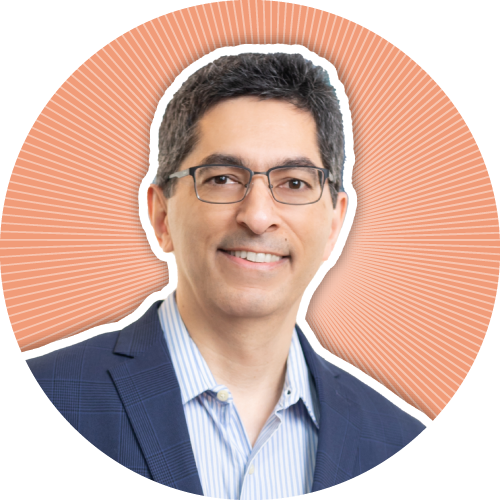
Dr. Onkar Ghate
Senior Fellow,
Ayn Rand Institute
Featured Talks

Dr. Tara Smith
Professor of Philosophy, University of Texas at Austin
Many people who support rational egoism nonetheless struggle to fully live it due to subconscious premises and psychological baggage left over from years led by antithetical moral codes. This lecture will preview Dr. Smith’s forthcoming book on the subject, Egoism Without Permission: The Moral Psychology of Ayn Rand’s Ethics. After offering an overview of the project, the lecture will drill down on a critical but often misunderstood element of healthy happiness: desire. We will see how, while reason is man’s means of survival, desire is man’s reason for surviving.
and Why It Persists

Dr. Gregory Salmieri
Senior Scholar of Philosophy,
Salem Center
Ayn Rand denounced racism as “the lowest, most crudely primitive form of collectivism.” She also rejected as collectivist many of the measures being advocated to combat this evil, including what became the Civil Rights Act of 1964. On the 60th anniversary of that law, Dr. Salmieri will revisit the themes of Rand’s classic article “Racism,” relating them to present-day America.
Topics include: the definitions of “race” and “racism,” how the rejection of free will inclines intellectuals toward racism, how superficially opposed racist doctrines on the political left and right embolden one another, in what respects racism can be “institutional” or “systemic,” how statist policies (including provisions of the Civil Rights Act) perpetuate existing racial inequities, and why it is only by embracing capitalism that we can put racism and its legacies behind us.

Dr. James Lennox
As a historian and philosopher of biology, much of Dr. Lennox’s research has focused on the philosophical foundations of history’s two greatest biologists: Aristotle and Charles Darwin. Historians and philosophers often portray these two giants as diametrically opposed in their approach to the study of life. But were they? In this talk, he will provide a novel answer to that question—and guidance on how to engage with such questions objectively.

Dr. Shoshana Milgram
Associate Professor of English, Virginia Tech
Fifty years ago, Ayn Rand journeyed to West Point to speak to a new senior-level course offered by the Department of English. She told the cadets—and the world—who needed philosophy, and why. Now you can learn from archival documents and new interviews why and when she was invited, which readings the course contained, how she prepared, and what about her lecture astonished her hosts.

Jean Moroney
President of Thinking Directions
“Package-Deals”

Peter Schwartz
Distinguished Fellow, Ayn Rand Institute
The most pernicious ideas are often injected into the culture by the method of “package-dealing”—the attempt to integrate the unintegratable. Expanding on previous material he has presented on this subject, Mr. Schwartz will offer a more advanced analysis of the mechanics of the package-deal. He will address such questions as: Can the same word stand for both a valid concept and a package-deal? What is the role of a definition in the formation of package-deals? What is the difference between anti-concepts and package-deals? This talk will focus particularly on the telltale signs one should look for in trying to identify a package-deal.
Social Activities and Community
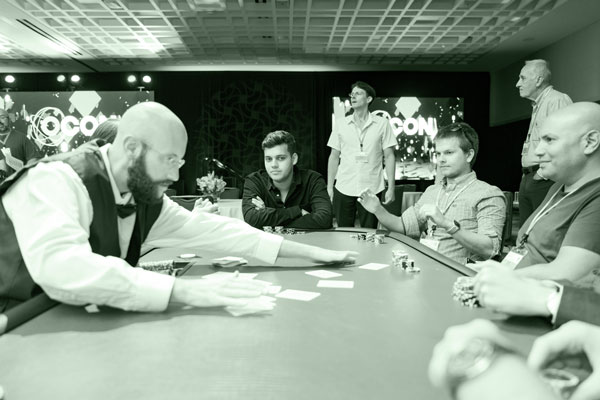
Championship Tournament
Join board members, speakers, and fellow attendees on Monday, June 17, for the Fourth Annual OCON Texas Hold ’Em Poker Championship Tournament.

OCON’s Got Talent
